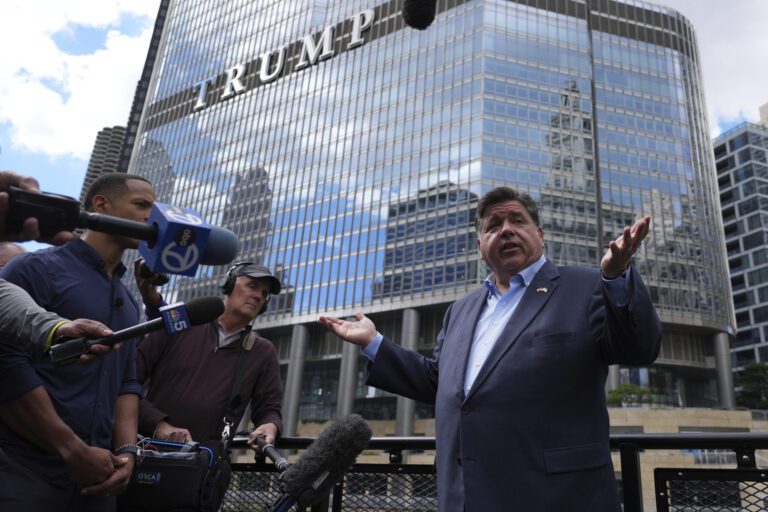Illinois National Guard at Risk of Federalization: Governor Pritzker’s Concerns
Introduction
In an escalating clash between state and federal authorities, Illinois Governor JB Pritzker is raising alarm over the federal government’s plans for the Illinois National Guard. He asserts that the real crisis in Chicago stems not from protests, but from aggressive actions taken by Immigration and Customs Enforcement (ICE).
Pritzker’s Stance on ICE Actions
During an appearance on CNN’s “State of the Union,” Governor Pritzker condemned the Trump administration’s law enforcement strategies in Chicago. He highlighted a disturbing incident where over 100 people were removed from a local apartment under the cover of night, claiming that even U.S. citizens were among those affected. Pritzker insisted that such tactics are contributing to a perception of Chicago as a “war zone.”
“They need to get out of Chicago if they’re not going to focus on the worst of the worst,” Pritzker said.
Legal Implications of Federalizing the National Guard
Should the Trump administration follow through with federalizing the Illinois National Guard, legal challenges loom large. Pritzker cited a recent ruling from Portland, Oregon, which blocked the federal government’s attempts to deploy the state’s National Guard to address local unrest.
Key Takeaways from the Ruling:
- Judge Karin Immergut, appointed by Trump, ruled against the deployment, stating there was no significant disorder in Portland.
- She emphasized that recent protests were manageable through regular law enforcement channels.
“What the government is doing — what Trump is doing — is untethered from the facts,” Pritzker remarked in a response to the ruling.
Escalation of Tensions
Pritzker critiqued the federal response as excessive, suggesting that the measures taken—like deploying tear gas in Broadview, Illinois—are inciting more conflict, rather than resolving issues.
“If you were on the ground and were having tear gas pellets fired at you, you want to react. You want something to happen,” he elaborated.
Responses from Federal Officials
In response to the court’s decision, White House Deputy Chief of Staff Stephen Miller described the ruling as “legal insurrection” and asserted that only the president has the authority to dictate military actions, even pertaining to state National Guards.
Broader Implications for State and Federal Relations
Governor Pritzker’s comments reveal a critical view of federal overreach in local matters, an opinion shared by other state leaders. California Governor Gavin Newsom has announced plans to sue the Trump administration over similar troop deployments to Portland, condemning it as a misuse of military resources for political purposes.
“He is using our military as political pawns to build up his own ego. It’s appalling. It’s un-American. And it must stop,” Newsom stated.
Conclusion
The ongoing conflict between state governments and the federal administration highlights a pressing need for careful consideration of law enforcement tactics and the deployment of National Guards. As Illinois grapples with these challenges, the implications for residents and local governance are significant. As tensions continue to rise, it remains crucial for state leaders to defend their autonomy and prioritize the well-being of their communities.
External Resources
For more information on the implications of federalizing the National Guard, visit National Guard or read more about civil rights issues at ACLU.
Staying informed on legal updates and local governance issues is crucial in this climate.


